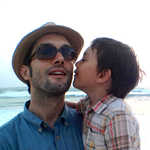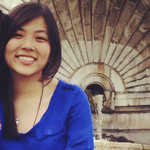Several years ago I visited a cathedral in Northern France whilst on holiday. The grounds of monasteries, churches, and cathedrals hidden away in ancient monolithic citadels somehow become infectious over time as I’m travelling. Their spirals act like magnetic beacons that pull at me in until I relent and feel compelled – no – destined to explore them.
In hindsight, walking through the broad, open doorway of this particular cathedral was a mistake however. To this day I still can’t fully describe what irked me about the strangeness of it all.
The faithful were penned in behind an enormous gate, chanting and practising their rituals whilst, like shameless children, the tourists encircled them, snapping photographs, sneering at them from the sidelines of their faith. I might not have believed in these chants or rituals but I felt something close to shame in many ways as we were clearly intruding. Their devotion was no longer an argument or a side in which to take across philosophical lines, it was now a twisted theme park ride of which we were thrilled to hop aboard.
This was all I could think about as I stumbled upon ‘Church going’ earlier in the week. It’s a wonderful poem by Philip Larkin that eerily captures what it feels like to explore these grounds:
Once I am sure there’s nothing going on/ I step inside, letting the door thud shut./ Another church: matting, seats, and stone,/ And little books; sprawlings of flowers, cut/ For Sunday, brownish now; some brass and stuff/ Up at the holy end; the small neat organ;/ And a tense, musty, unignorable silence,/ Brewed God knows how long. Hatless, I take off/ My cycle-clips in awkward reverence.
Move forward, run my hand around the font./ From where I stand, the roof looks almost new -/ Cleaned, or restored? Someone would know: I don’t./ Mounting the lectern, I peruse a few/ Hectoring large-scale verses, and pronounce/ ‘Here endeth’ much more loudly than I’d meant./ The echoes snigger briefly. Back at the door/ I sign the book, donate an Irish sixpence,/ Reflect the place was not worth stopping for./
Yet stop I did: in fact I often do,/ And always end much at a loss like this,/ Wondering what to look for; wondering, too,/ When churches will fall completely out of use/ What we shall turn them into, if we shall keep/ A few cathedrals chronically on show,/ Their parchment, plate and pyx in locked cases,/ And let the rest rent-free to rain and sheep./ Shall we avoid them as unlucky places?/
Or, after dark, will dubious women come/ To make their children touch a particular stone;/ Pick simples for a cancer; or on some/ Advised night see walking a dead one?/ Power of some sort will go on/ In games, in riddles, seemingly at random;/ But superstition, like belief, must die,/ And what remains when disbelief has gone?/ Grass, weedy pavement, brambles, buttress, sky,/
A shape less recognisable each week,/ A purpose more obscure. I wonder who/ Will be the last, the very last, to seek/ This place for what it was; one of the crew/ That tap and jot and know what rood-lofts were?/ Some ruin-bibber, randy for antique,/ Or Christmas-addict, counting on a whiff/ Of gown-and-bands and organ-pipes and myrrh?/ Or will he be my representative,
Bored, uninformed, knowing the ghostly silt/ Dispersed, yet tending to this cross of ground/ Through suburb scrub because it held unspilt/ So long and equably what since is found/ Only in separation - marriage, and birth,/ And death, and thoughts of these - for which was built/ This special shell? For, though I’ve no idea/ What this accoutred frowsty barn is worth,/ It pleases me to stand in silence here;/
A serious house on serious earth it is,/ In whose blent air all our compulsions meet,/ Are recognized, and robed as destinies./ And that much never can be obsolete,/ Since someone will forever be surprising/ A hunger in himself to be more serious,/ And gravitating with it to this ground,/ Which, he once heard, was proper to grow wise in,/ If only that so many dead lie round.





